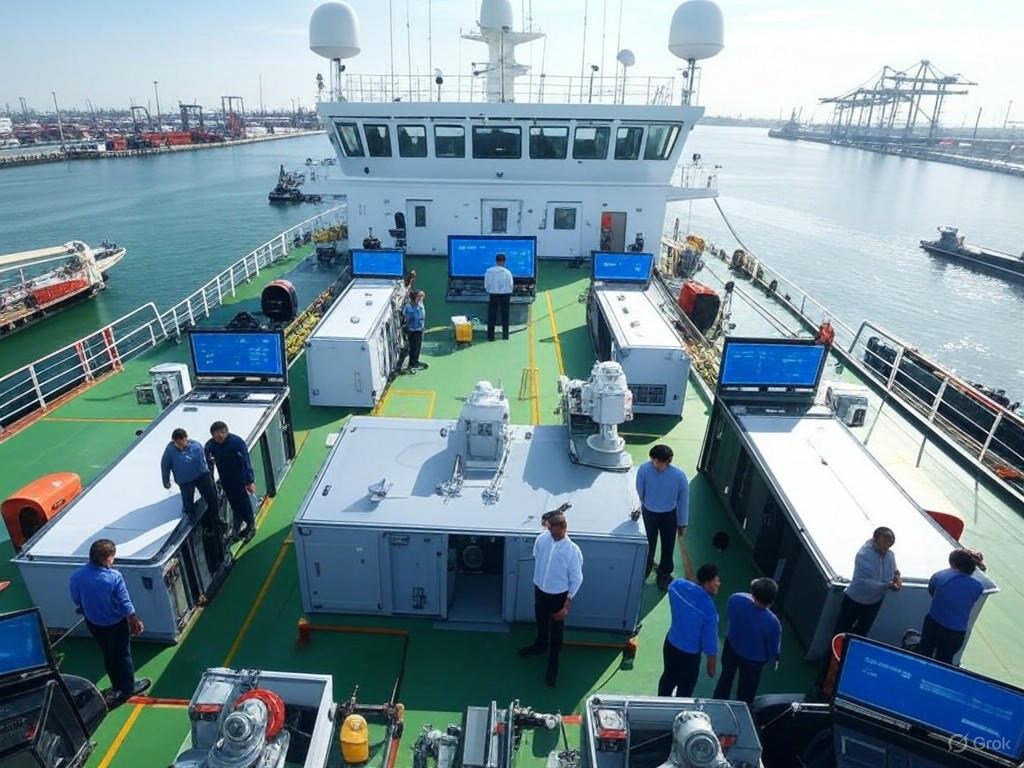Maritime industries are increasingly turning to Artificial Intelligence (AI) to enhance predictive maintenance of ships, marking a significant shift towards smarter, more efficient operations. Predictive maintenance uses AI to analyze data from ship sensors to predict when equipment might fail, allowing for maintenance before problems arise. This process saves time, reduces costs, and prevents disruptions.
One of the primary drivers of this technological integration is the reduction of downtime. Ship operators can now rely on a system that foresees breakdowns and schedules repairs in advance. This move enhances operational efficiency by ensuring vessels spend more time at sea and less in port undergoing unforeseen repairs. Examples of successful implementation highlight how companies like Rolls-Royce and Wärtsilä have deployed AI systems to monitor ship components systematically. These systems optimize maintenance schedules, extending vessel lifespans and reducing operational disruptions[1].
Moreover, AI-driven predictive maintenance also supports environmental sustainability efforts. By optimizing routes and minimizing fuel consumption, operators can significantly reduce emissions. This not only benefits the environment but also aligns with the growing regulatory pressures for greener maritime operations. The International Maritime Organization’s regulations on emissions are a significant impetus for innovation in this area, urging stakeholders to adopt clean technologies[2].
Japan and Norway lead the charge in integrating AI into their maritime operations, where predictive maintenance plays a critical role. Their AI ethics frameworks ensure these technologies enhance maritime safety without compromising ethical standards. By embracing a fusion of local know-how and cutting-edge technologies, these countries are setting benchmarks for others to emulate. Japan, for instance, benefits from the Nippon Foundation’s emphasis on ethical AI adoption[3].
With AI technology advancing rapidly, the maritime industry faces a golden opportunity to transform its operations significantly. By leveraging AI for predictive maintenance, the sector not only boosts safety and efficiency but also propels itself toward a sustainable future. As more shipping companies explore these possibilities, the seas promise smoother and greener sailings ahead.
References:
1. Maritime Artificial Intelligence Market | Industry Report, 2030. Grand View Research.
2. A cocktail of technologies and techniques for a revolution in shipping. ORF
3. Maritime Artificial Intelligence ethics and algorithmic accountability. My Joy Online.







